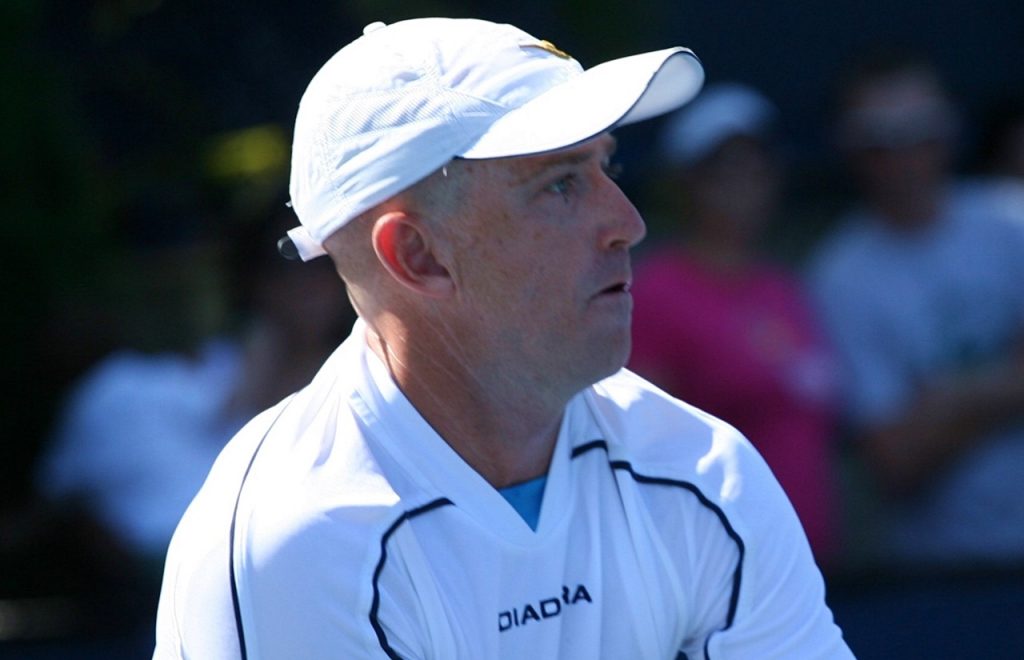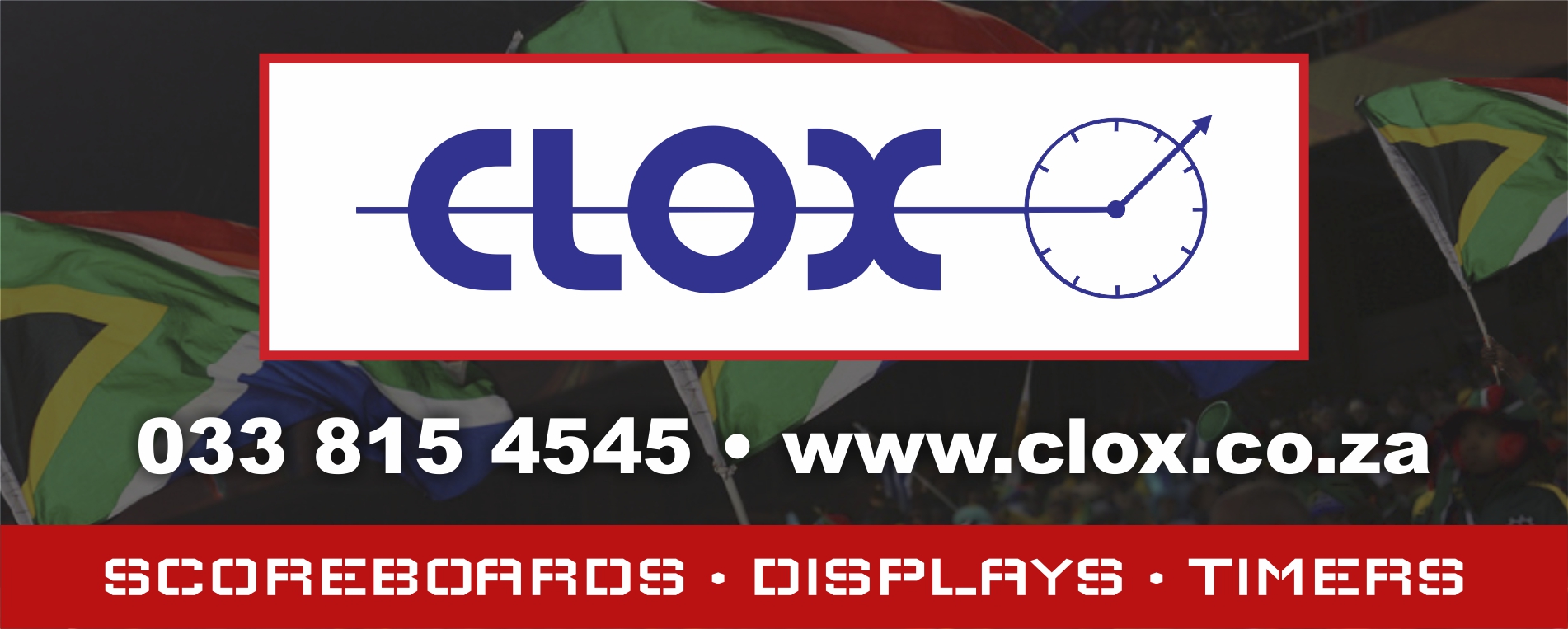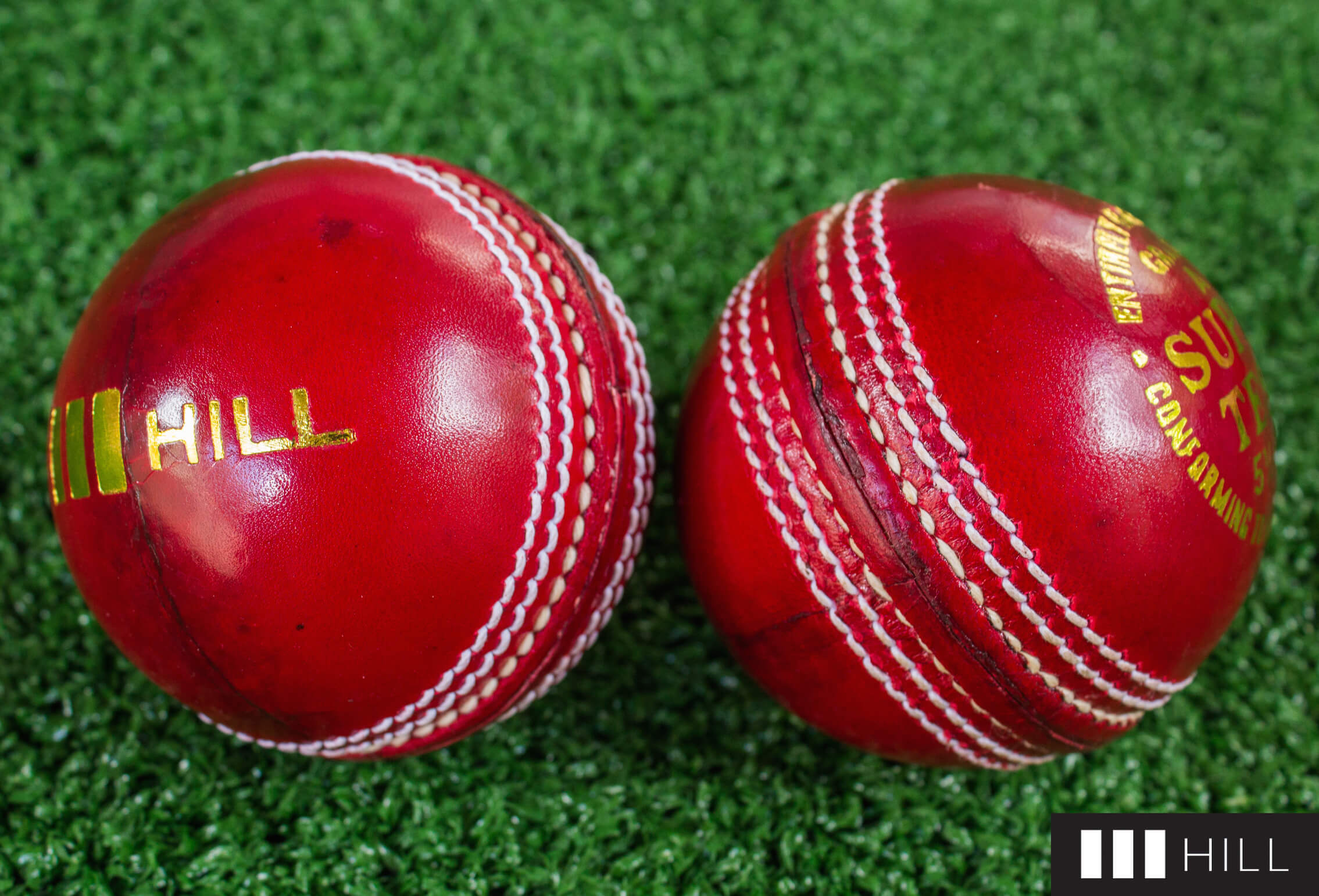Grand Slam champion Kevin Ullyett talks tennis and influences

4 June 2020 – Born in Zimbabwe, Kevin Ullyett moved to South Africa at a young age. He attended Atholton Primary School in Umhlanga Rocks before moving on to Beachwood (which less than a year after he finished there amalgamated with Northlands and became Northwood) for high school. At the beginning of his matric year, he left school to pursue a career as a professional tennis player. It proved to be an excellent decision. He spent 18 years on tour, winning 34 doubles titles in total, including three Grand Slams.
Speaking with KZN10.com’s Brad Morgan, he said sport was an important part of life in the Ullyett household. Kevin’s dad, Robert, played Currie Cup cricket for Rhodesia and also represented the country in hockey at the 1964 Olympics in Tokyo. His older brother, Clive, was also a good tennis player who would go on to play professionally, but without achieving similar success to Kevin.
From an early age, the boys were subjected to an active lifestyle and from the latter days of his junior school career that meant early morning tennis coaching for Kevin, between 05:30 and 06:30, under the tutelage of Peter Waters. Then it was off to catch a bus to school at 07:00.
Kearnsey, Northwood share spoils in cracking season-opener
https://kzn10.com/kearsney-northwood-share-spoils-in-cracking-season-opener/

Peter Waters coached Kevin from a young age. He eventually retired in mid-2019 after a coaching career that lasted 55 years.
“As I started putting in the hours,” he recalled, “I started having some decent results and realised I liked it more than the other sports, I suppose.”
Becoming a top junior player meant his holidays were often filled with tournaments. “Every holiday, from under-12, about standard five, I would go to Johannesburg, because it’s always been the place where the tournaments were held. Then, at the end of the year, there were the East London and Port Elizabeth Sugar Circuit events. From under-12 through to under-18, I did that every year.”
Tennis at Beachwood was strong. Practices took place a couple of times a week and then there were matches, too. Westville Boys’ High, at that time, was also exceptionally strong and Kevin often played against those players, who included, among others, Robbie Koenig, Ellis Ferreira, Grant Adams, Kirk Haygarth and Myles Wakefield, all of whom went on to successful professional careers.

Get a firmer grip on your possessions with KZN’s Titan Technologies. https://www.titantech.co.za/
Robbie Koenig, who has become a world-renowned tennis commentator, was a good friend and rival as they grew up. “Robbie and I played so much junior tennis together. We had such good battles throughout our junior career, and we would go and practice together on weekends, all day. He was quite instrumental in my game, because he was probably the best competitor out of all the juniors here, like a Pit bull, never-give-up kind of attitude. He broke my heart so often in the juniors. It toughened me up a lot. We spent so much time together. It was good.”
While Robbie might have broken Kevin’s heart at times, Robbie wasn’t having any of it when discussing Kevin. “Don’t take his BS,” he said with a laugh. “When it really mattered he got one over me in the seniors, when there was big money up for grabs. Over the course of his career, he cost me a boatload of money on the Pro Tour.”
Remembering his time at Beachwood, Kevin said: “We had a really good Headmaster, Mike Ellis, when I was there. Back in those days, there was a lot of structure and quite a lot of discipline. Nowadays, I think the kids get away with murder, but back then there was no stepping out of line. Mike Ellis went on to become a politician for the DA and Mr Robinson, the Vice-Head, stepped in. That structure and discipline helped me in tennis. My dad also got us to focus on a hard work ethic.”
The teachers, too, were really good, he said, and the competition provided by other nearby schools, like Glenwood and Northlands, helped keep the standards high.

At the Inter-provincial Schools Tennis Tournament in Bloemfontein, with Damian Mustard (Pinetown), Garth Furmidge (Michaelhouse), Ryan Fitzwilliam (Northlands), Roger Mills (Westville), Kevin Ullyett (Beachwood), Clint Lishman (Grosvenor), teacher Gary Coombe (Beachwood) and Kirk Haygarth (Westville).
When Kevin reached matric one of the pivotal moments of his life occurred three weeks into the first term. He explained: “During that time, tennis in South Africa was at a stage where there were a lot of local events, challengers and satellites, where locals were getting wildcards, guys like Wayne Ferreira and Marcos Ondruska.
“There were eight to 10 guys who were getting world rankings points and doing really well in those tournaments. They were all leaving school, so I convinced my dad (I don’t know how) that I should leave school as well.
“I completed my schooling through correspondence and split it over two years, so that I could play tennis and travel to all of the events around the country, while I was still under-18. I played against all the Defence Force guys who were doing their national service. That’s what I convinced my dad about and he bought into it.”

Pivotal Talent’s Online SubjectChoice (Grade 9s) and CareerGuide (Grade 10s, 11s and 12s) solutions replaces uncertainty with accuracy in directing your children to make full use of their potential. Check out www.careerguidesolution.co.za
Nowadays, without the tournaments that existed back then, it is so much harder for South Africans to make it onto the ATP World Tour, but at that time the satellite and challenger events drew players from overseas. And the high altitude of Johannesburg favoured the local players, Kevin recalled.
“The conditions in Joburg were quite different and the ball flew around. They weren’t used to that. Living here, it was a great opportunity for the young guys, who were getting wildcard opportunities, to get some scalps of the guys who were coming over and ranked 200-300 in the world. That was a good springboard, but it is much harder now starting out, because you have to fly to other countries and play in tough conditions to fight for points.

Hanging out with visiting players for a Challenger event in Durban. That’s Ryan Fitzwilliam (Northlands) on the right, opposite Kevin, in front.
“If you did well in those tournaments back then, you could pick up 10 or 30 points in a Challenger and ramp up your ranking. It was easier, but now you have to get out there, find some places you can get in. There are also more people playing, and it takes cash to travel now. We were lucky back then that the South African Tennis Federation assisted a lot of the juniors to get into tournaments.”
The fact that a group of talented juniors, many of them from KwaZulu-Natal, were emerging at the same time helped them make the jump into the professional ranks. “That’s key,” Kevin said. “That’s why I think the Spanish and the French have done so well. They’ve had 15 to 20 guys all at once [coming through].

“You don’t to want to lose to the one guy and he makes some points, and you want to match him. It’s a good rivalry to have and we had that, with about six to eight guys in Natal, and then there were the Joburg guys, so there was a good pool of kids. We had the numbers, but I feel they have now dwindled a little and it’s difficult to get that now.”
Support from the national tennis federation also played a crucial role, with a Super Squad, under the coaching of Glenwood old boy Keith Diepraam, featuring Wayne Ferreira, Marcos Ondruska and Grant Stafford, while just below them was the Elite Squad, which included Kevin. It was coached by Kobus Botha.
“Those couple of years, 1991-1994, with Kobus really helped me, especially mentally,” Kevin said. “He was really good on the mental side of competing and we worked terribly hard, and that’s what gave me a good springboard. Peter Waters gave me my whole life as a kid but, when I left Durban and went to Joburg and overseas, Kobus was the one that pushed me to get onto the circuit and to play bigger events.

Coach Kobus Botha (left) played a very important role as Kevin transitioned to life as a professional tennis player.
“In 1995, Kevin Curren coached and mentored me, which was also a key stage in my career. He taught me how to think more of the ‘bigger picture’ and play the right way and not be results/cash-driven, which took some pressure off of me. He encouraged and helped me to put on five kilograms with the help of a trainer in Austin, Texas, to try add more pace on shots and move more explosively. I was very fortunate to have someone like Kevin Curren, who had competed at the highest of levels of the game, guiding me.”
Kevin enjoyed some success as a singles player, with his ranking settling in between 100 and 300 in the world from the time he was 19 years of age. But there was a problem: clay courts. “I was more of a classical player, playing on fast courts. I had to bypass the whole clay season because I couldn’t actually move on the stuff. My results were too inconsistent to keep my ranking at 100 or below on a regular basis. I had to rely on a couple of good weeks every year, and it showed in my singles rankings.”
Some of the older pros, who were playing doubles, suggested to him that he should focus on doubles. He made the decision to follow that path in 2000, strangely enough after his best year in singles in 1999.
“It takes a lot of hard work to stay high up in singles. It was a career decision to hang up my racquet and do something else or to give doubles a crack, like all the other guys were doing, and see what happens. It turned out that I had eight really good years of doubles.
With the benefit of hindsight, he admitted: “I should have done that earlier. I felt I still had something to offer in singles, but the [good] results were too intermittent.”

Young and with a full head of hair, practicing to make it to the top.
Doubles also had the benefit of having a partner. “The singles is more cut-throat,” Kevin said. “In doubles, it’s nice to play as a team. You can practice together. It’s a lot more beneficial. If you just play singles, it can be quite solitary. The doubles’ players generally get on really well. There is a lot of camaraderie.”
Finding the right partner is important, though, especially with matches often being decided by small details and margins. He explained: “It’s like trying to find a girlfriend. What was important to me was finding someone to fit my style of play. I was decent at the net, but I wasn’t as consistent at returning, so I needed someone who could return really well. That’s what I looked for. If saw someone who was solid on returns, those were the people I would target.
“You just have to go up and ask. You just say why don’t we try a few weeks and the worst they can say is no. You try it and work, and then you commit to play the next year, and then you’ve got to give the bad news to your current partner that you’re breaking up with them, and it happens in reverse. Your partner might tell you they’re moving on, which is fine. It’s a career decision. I think everyone understands that. You’ve got to look after number one, unfortunately.”
His doubles exploits started with Pietie Norval, who had partnered Wayne Ferreira to an Olympic silver medal in Barcelona in 1992. “We were mates and we spent a lot of time together in London, and we did well for a couple of years. It was just people I knew,” Kevin said.

Check out the Cell C personal and business contracts at https://www.cellc.co.za/cellc/contracts
Despite leaving Zimbabwe at an early age, the country came to play a role in Kevin’s tennis career and the Black family, which produced professional players Byron, Wayne and Cara, were a big part of it.
Looking back, Kevin said: “We left Zimbabwe pretty early. I remember Wayne, we were a similar age, playing juniors at under-eights. Then I didn’t see him for my whole junior career, but bumped into him again as we were all turning pro.
He and Wayne then formed a very successful doubles partnership, including teaming up to play Davis Cup for Zimbabwe. Their tie against the USA in Harare in 2000 is a match that Kevin reckons was the most memorable of his career.
“It was at the Sports Centre, which had a corrugated iron roof, and we had 5 000 people banging drums in between every point. It sounded like a festival. The Americans included Andre Agassi and John McEnroe was the captain. It was phenomenal. We had a packed Harare crowd and we managed to win 7-5 in the fifth set [against Rick Leach and Alex O’Brien]. That was probably the greatest moment and most intense match I was a part of.” The victory gave Zimbabwe a shock 2-1 lead over the USA, but they were unable to hold on to it and eventually went down 2-3 after a tremendous battle.

When the match is tight and every run counts, you can count of Clox Scoreboards of KZN. http://clox.co.za/
Playing in the Davis Cup brought a different dynamic to competition and it was something that Kevin enjoyed. “It was amazing. Our Davis Cup matches in Zim were always a nice week back there. We practiced hard and the crowds were really vocal and it was fun. We would have a really good time. We didn’t really put that much pressure on ourselves. It was really something to play in a team event for your country.”
In 2001, Kevin and Wayne Black claimed a major title, the first for both of them, when they landed the US Open crown with a 7-6 (11-9), 2-6, 6-3 victory over the American duo of Donald Johnson and Jared Palmer in the title-decider.

New York: Kevin Ullyett and Wayne Black celebrate victory in the 2001 US Open. It happened just two days before the terrorist attacks on the World Trade Centre’s Twin Towers.
Remembering what it took to get there, Kevin said: “We would often get to the quarters or semis, one or two matches away, and it builds up a lot of pressure. In losing a few heart-breakers, you learn some hard lessons and you feel terrible afterwards. But two, three, four years down the line, you get in a similar situation again and the experience from those hard knocks before is valuable.
“You also see mental coaches and follow those kinds of processes to try and put yourself in that situation again and see what and how you would do things differently. That all goes into a mixing pot to improve yourself. Once you got yourself into a similar position again, you were ready.”

It is imperative for coaches to know what works for you. Get in the driving seat with the tried and tested. Contact Trish right now at info@trishsutton.co.za
The following year, in 2002, Kevin captured another Grand Slam title, teaming up with Daniela Hantuchova of Slovakia to takes the honours at the Australian Open. That was an unexpected result.
He recalled: “It was by chance that I played with Daniela. Her coach was a good friend of mine, Nigel Sears, and we were in Cape Town. We used to go there every year before the Australian Open, and she would fly from Europe to practice with him there. I was looking for hits and would hit with her. We put in some practice sessions and just said let’s play some mixed doubles. Our first tournament we played in we won and it was the Australian Open, so it was perfect!”

Kevin and Daniela Hantuchova lift the trophy after claiming the Australian Open mixed doubles title with a convincing 6-3, 6-2 win over the Argentinian pair of Paola Suarez and Gastón Etlis in the final.
His third and final Grand Slam win came in 2005 at the Australian Open when he and Wayne Black beat the most successful doubles team in history, the twins, Bob and Mike Bryan, 6-4, 6-4.
“I always had a dream of winning a Grand Slam. But, if I am honest with myself, I never really thought I would,” Kevin said. “It didn’t feel like we were good enough at one stage, but things started to happen. The next thing we had a Grand Slam title to our name and from there the confidence got really big. Once you’ve achieved that kind of milestone you want to win more. It was a surprise in a way.”
Apart from the three Grand Slam wins, he also made the Wimbledon final in 2008, partnering Jonas Björkman, along with six further semi-finals and 12 appearances in the quarters of the Grand Slams.

Take a 5-star break from life in the fast lane. Contact Fordoun CEO and former Michaelhouse rugby star Richard Bates for your well-earned break. https://www.fordoun.com/
In mixed doubles, he made the Wimbledon final with Daniela Hantuchova in 2002 and made it to the semis with her in 2003. Two years later, he teamed up with former South African, Liezel Huber (now an American citizen), to reach the Wimbledon semis once again. That same year, he and Huber were beaten in the Australian Open final.
On the top rung of the ATP World Tour, Masters 1000 events, he recorded wins in Miami and Hamburg in 2004, in the Canada Open in Montreal in 2005, Hamburg again in 2006, and Paris in 2008. The first three titles were with Wayne Black, who retired after the 2005 season, while the latter two were with Paul Hanley (Aus) and Jonas Björkman (Swe). There were eight further finals appearances, 13 semi-final slots, and 14 appearances in the quarter-finals.

Kevin Ullyett and his long-time doubles’ partner Wayne Black won the Masters 1000 title in Miami in 2004.
During the course of his career, he amassed over 500 victories and was ranked as high as fourth in the world in doubles.
As a fan of the game, he selected two matches as the best he has ever witnessed and both of them were singles finals at Wimbledon: the 1980 final between Bjorn Borg and John McEnroe, which Borg edged 1-6, 7-5, 6-3, 6-7 (16-18) and 8-6, and the 2008 final, an incredible shot-making classic, between Roger Federer and Rafael Nafal which the Spaniard won 6-4, 6-4, 6-7 (5-7), 6-7 (8-10) and 9-7.
In 2004, Kevin married Marylou in Hillcrest. In 2005, their first child, Jemima, was born. As a top sportsman travelling the world, with a child in tow, life had become more complicated.
He explained: “After 9/11 airline travel became so much more difficult, especially travelling with a kid and prams. You would go the airport for a 14:00 flight out of New York and you would get there at 11:00 to deal with the stringent security. It was becoming so tedious, so you really had to work hard on your schedule, and you needed a good travel agent to make sure that you were not flying via this place, via that place, and another.”

Hill Premium Quality Cricket Balls stay the distance. www.hillcricketballs.co.za
Inevitably, Kevin began considering the next step in his life, the one after tennis. Finally, after he made the decision to retire, he ended his career at the 2010 South African Open, partnering Wesley Moodie in the doubles.
“At that stage I was 36 and the travel was getting tough. I was a little over-cooked by then. I had been on tour for 18 years. It was quite a difficult decision, but in hindsight sometimes you get a bit clouded by the travel and losing some matches. That life is actually phenomenal.
“You get into the ‘real world’ and you realise how good playing tennis and making a living is. You’ve got your own time, you’re outside, playing a sport you love, and you’re getting paid.

A sticky wicket makes for messy backyard cricket. Take action before it’s too late. www.midlandssepticservices.co.za
“Just the kids and the travelling and, maybe, being away from them led me to think about doing something else. By default I fell into property development through my brother-in-law and a friend back in South Africa, just as I was trying to figure out what I was going to do for the next 20 to 30 years of my life.”
For a while, he and his young family lived in London following his retirement, and soon another son, Nicholas, was born. They then made a decision to return to South Africa and a home on the north coast. Back in South Africa, Florence, his fourth child, became the only one of his children to be born in South Africa.
Now, with four children – Jemima, Sebastian, Nicholas and Florence – it’s a very different life, revolving around family and plenty of time spent at home. There is time, too, for golf and he’s excelled there, winning the SuperSport Shootout in 2015 and multiple Umhlali Club strokeplay titles.
Travel is no longer an unavoidable part of his life. And Kevin’s very happily enjoying the change.

When it comes to planning your next school sports tour look no further than former Hilton College first XI captain Craig Goodenough who’s been there, seen the movie and bought the T-shirt factory.
